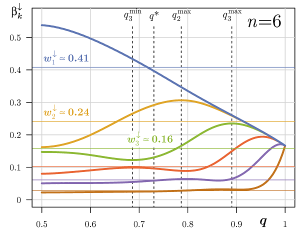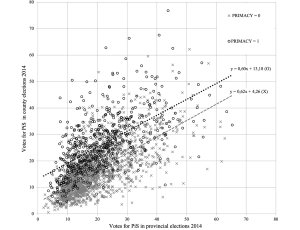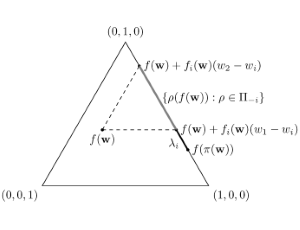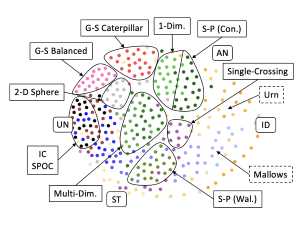Autorzy: Piotr Faliszewski, Jarosław Flis, Dominik Peters, Grzegorz Pierczynski, Piotr Skowron, Dariusz Stolicki, Stanisław Szufa, Nimrod Talmon
Projekt: Ważone gry wyborcze
Konferencja: Proceedings of the 32nd International Joint Conference on Artificial Intelligence (CORE A*)
arXiv: 2305.11035 [cs.GT] (link https://arxiv.org/abs/2305.11035)
DOI: 10.24963/ijcai.2023/297
URL: https://www.ijcai.org/proceedings/2023/0297.pdf
We provide a library of participatory budgeting data (Pabulib) and open source tools (Pabutools and Pabustats) for analysing this data. We analyse how the results of participatory budgeting elections would change if a different selection rule was applied. We provide evidence that the outcomes of the Method of Equal Shares would be considerably fairer than those of the Utilitarian Greedy rule that is currently in use. We also show that the division of the projects into districts and/or categories can in many cases be avoided when using proportional rules. We find that this would increase the overall utility of the voters.





